See Me conference brought together key players to explore actions still needed to reduce stigma and discrimination
Posted by See Me, 10 October 2025
MORE than 100 people gathered in Glasgow in a joint interest to call for action to end mental stigma and discrimination.
See Me, Scotland’s programme to end mental health stigma and discrimination, hosted its national conference, Shifting the Dial. The programme brought together people with lived and living experience of mental health problems, community members and leaders working in the equalities space, employers, advocates and people who are involved in policy and practice improvement within services.
Participants were also pleased to be joined by the minister for social care and mental wellbeing Mr Tom Arthur MSP.
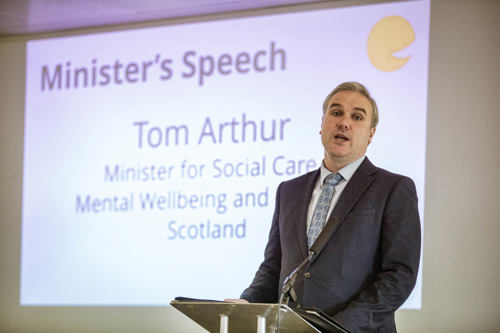
During his speech, the minister restated Scottish Government’s commitment to the continuation of Scotland’s anti-stigma work and acknowledged the role See Me continues to play in bringing together leaders in key sectors, action can be driven within organisations, policies and practices.
Shifting the Dial invited a host of speakers to illustrate the scale of change still needed.
Gary Glenfinnan, a volunteer with See Me, opened the day with a stark reminder of why ending stigma and discrimination is essential.
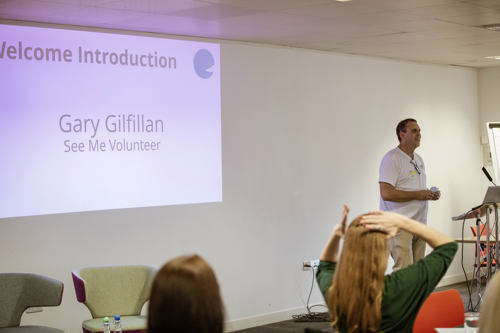
Lucien Staddon Foster from the Coalition for Racial Equality Rights (CRER) proposed it necessary to take an anti-racist approach if we want to tackle the stigma and discrimination that affects black and minority ethnic communities.
Dr Rebecca Johnson from Glasgow Caledonian University spoke about the impact on young people of stigmatising responses from adults who have an inherent power over young people, and proposed that instead of ‘fixing young people’s responses to stigma’, we should be ‘changing the adult systems that generate stigma’. Dr Johnson’s research identifies this as a gap area for young people – there are currently no anti stigma interventions designed to address stigma within the adult – young person relationship.
See Me youth consultants convened a lively panel discussion involving advocates and partners, who are passionate about ending mental health, alongside other forms of, stigma and discrimination in Scotland.
The panel members were VOX (Voices of Experience) manager Natalie Stevenson Manager, Glasgow Caledonian University senior lecturer in Law Dr Karla Perez Portilla, peer researcher Kirsty Hughes, and Suicide Prevention Scotland’s Time Space Compassion lead Linda Hunter.
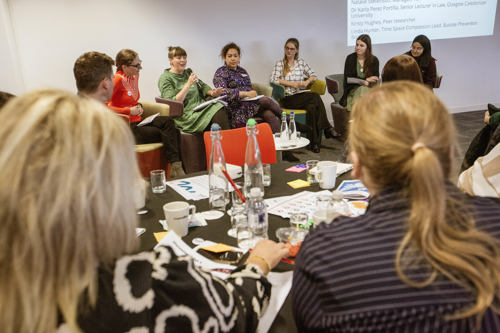
See Me director Wendy Halliday said: “Since 2002, See Me have been campaigning to end mental health stigma and discrimination in Scotland - working in partnership with lived experience advocates, partners and organisations to influence for change at scale.
“The Scottish Mental Illness Stigma Study told us that people living with mental illness continue to be stigmatised and discriminated against in almost every life area – with many people withdrawing from services because of discrimination in the very places that should be upholding people’s right to fair treatment. We’re seeing a growing hostile environment for people living with mental health problems and illness – with people experiencing its devastating impacts alongside racism, transphobia, misogyny, classism and ableism.
“Our ongoing partnerships with strategic equalities and grassroots organisations have been critical in helping develop our understanding of the nature and impact of intersectional mental health stigma and discrimination and shaping what is needed to address it.
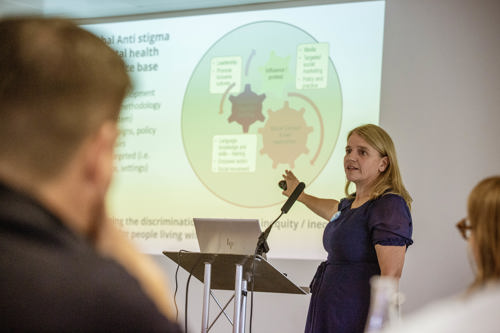
“It's essential we work alongside people who face mental health stigma and discrimination alongside racism and other forms of discrimination to break down the systemic barriers that continue to get in the way of people being able to live fulfilled lives and achieve the outcomes important to them.
“Shifting the dial on mental health stigma and discrimination will take deliberate, collective and sustained action.
“So, as we work through the final year of our strategy, With Fairness in Mind, and look to the next phase of work, the conference has helped form a wider call to action – putting it out to our supporters, our partners, and anyone else with an interest in making lasting change to join us to explore how we can do it together.
“We are so grateful to our volunteers, partners and participants for their time, expertise and provocations, particularly at a time when people working in the human rights and equalities space are facing unprecedented challenges and pressures.
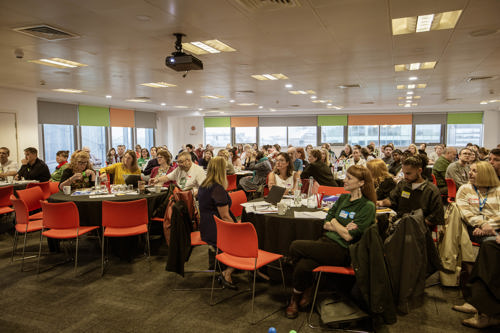
“The conference reiterated the critical need for solidarity with our strategic equality and grassroots partners to drive for equity, fairness and empowerment, and a sustained shift in policy, legislation and practice across services to ensure equity and fairness in mental health outcomes for everyone. People with diverse lived and living experiences should be heard and directly involved in action to dismantle the systemic barriers that continue to create inequalities.
“A clear message from the event is it will take all of us to work together collaboratively shift the dial on mental health stigma and discrimination.”
